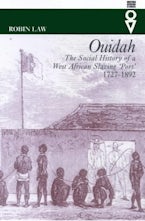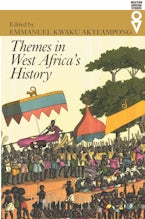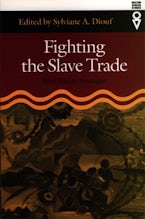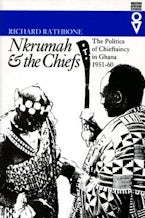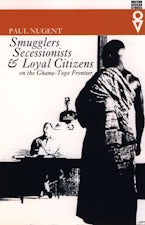
Title Details
256 Pages
23.4 x 15.6 cm
17 b/w, 3 line illus.
Series: Western African Studies
Imprint: James Currey
'Civil Disorder is the Disease of Ibadan'
Chieftaincy and Civic Culture in a Yoruba City
- Description
- Reviews
Audrey Richards Prize Winner
This book is a study of chieftaincy and political culture in Ibadan, the most populous city in what was Britain's largest West African colony, Nigeria. Examining the period between 1829 and 1939, it shows how and why the processesthrough which Ibadan was made into a civic community shifted from the battlefield to a discursive field. Concentrating on the early-to-mid colonial period, the book's focus on political discourse encompasses Ibadan's pre-colonialpast, because forms of social action and political argument were always legitimated in terms of past precedents. This book offers a contribution to the social and cultural history of British colonial administration in Africa, aswell as to the field of urban history. It should be of interest to anthropologists and social scientists for its innovative approach to the study of political culture.
North America: Ohio U Press; Nigeria: HEBN
This book is a study of chieftaincy and political culture in Ibadan, the most populous city in what was Britain's largest West African colony, Nigeria. Examining the period between 1829 and 1939, it shows how and why the processesthrough which Ibadan was made into a civic community shifted from the battlefield to a discursive field. Concentrating on the early-to-mid colonial period, the book's focus on political discourse encompasses Ibadan's pre-colonialpast, because forms of social action and political argument were always legitimated in terms of past precedents. This book offers a contribution to the social and cultural history of British colonial administration in Africa, aswell as to the field of urban history. It should be of interest to anthropologists and social scientists for its innovative approach to the study of political culture.
North America: Ohio U Press; Nigeria: HEBN
"This is a brilliant and original reinterpretation of Ibadan's political past, addressing for the first time the question of how the city's civic culture was constituted and how it changed between the mid-nineteenth and mid-twentieth centuries ... Watson shows apparently effortless mastery of highly complex data...a really beautifully crafted and lucidly written book." Karin Barber, Professor of African Cultural Anthropology, Centre of West African Studies, University of Birmingham
"... lucidly written, brilliantly constructed account of chieftaincy and the political culture of Ibadan ... It moves well beyond the commonplace study of colonial impact on indigenous polity in teasing out the drama of African agency and manipulation. ... It will be of interest to historians, anthropologists and political scientists for its innovative approach to political culture. I highly recommend it." David Dorward, ARAS
"While the story is, in general terms, already familiar, Watson illustrates it deftly by detailed analysis of particular episodes, and also by deconstruction of ceremonial events and material objects expressive of political ideas..." Robin Law in HISTORY
"... after finishing the book the reader is left with the feeling, not of having read about an anomaly, but rather of having gained more insight into the function of civic culture more generally. This very subtle analysis drives home some points that are equally relevant elsewhere in Africa: the need to be wary of simplistic assumptions about the impact of the ideology of indirect rule, and also to pay attention to the subtle and continuous changing of civic culture during, before and after the colonial period. What is more, Watson has shown us a fruitful approach to analysing these changes to build up a dynamic understanding of local political culture." Dmitri van den Bersselaar, JOURNAL OF AFRICAN HISTORY
Paperback
9780852554548
June 2003
$36.95 / £24.99
Title Details
256 Pages
2.34 x 1.56 cm
17 b/w, 3 line illus.
Series: Western African Studies
Imprint: James Currey












